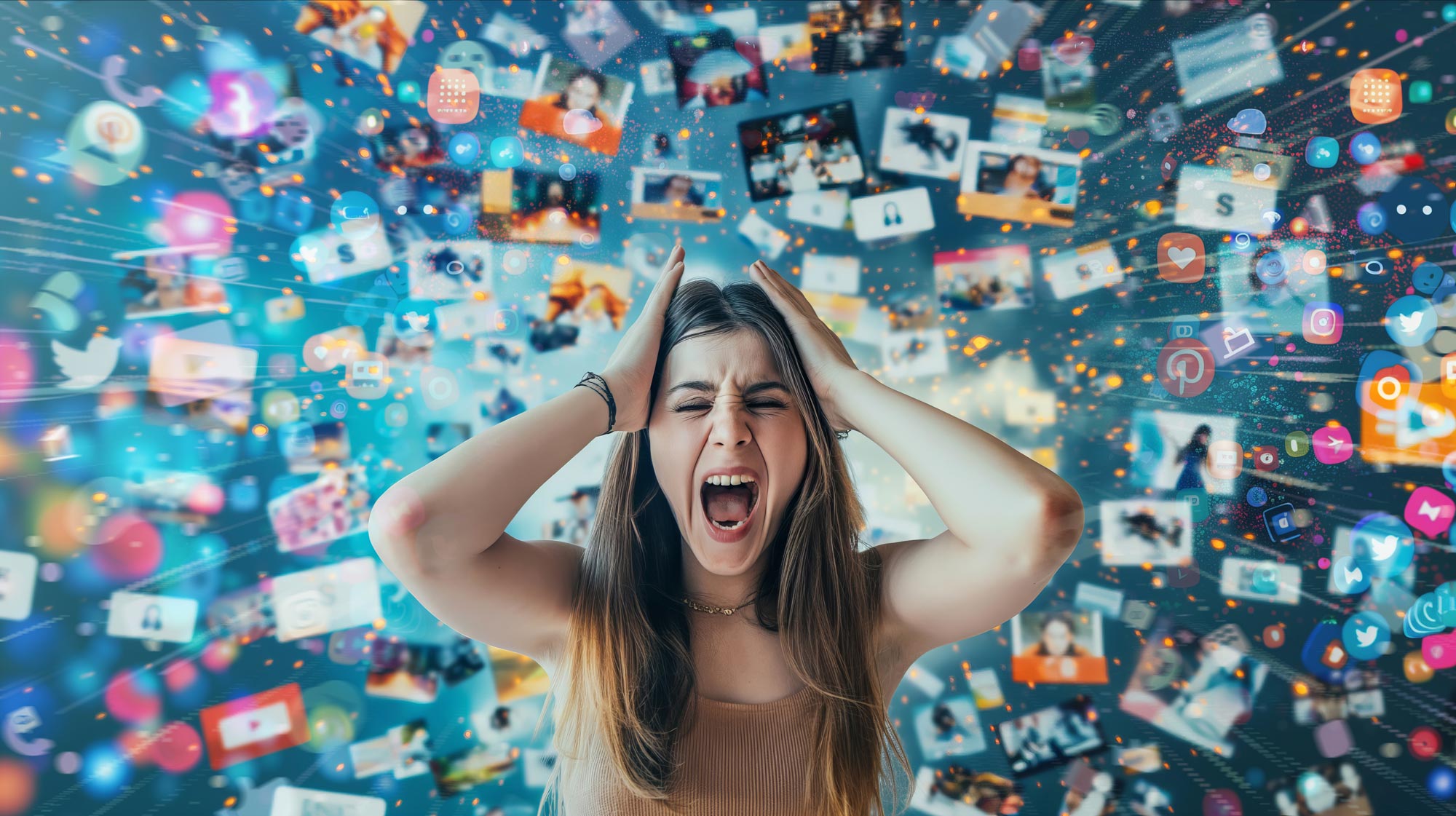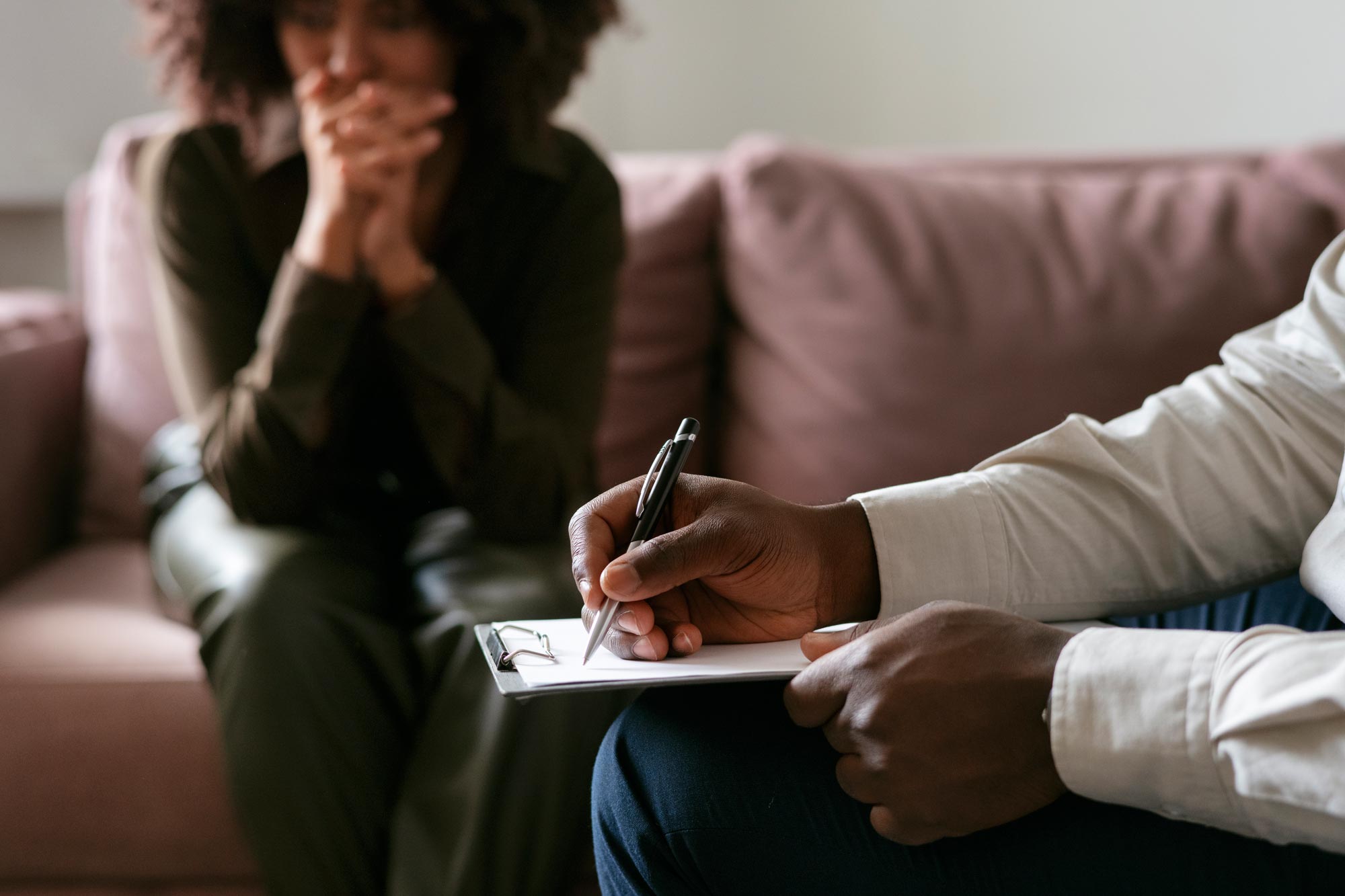Blog
The Mental Health Cost of Constant Connection: Understanding the Problematic Use of the Internet and Social Media

By Dr. Aaron Ellington, PhD, LPCC-S, LICDC-CS
We live in an age of instant information, endless scrolling, and constant connection. While the internet and social media have transformed how we communicate, learn, and interact with the world, there’s a growing body of research and real-life experience revealing a darker side to our digital lives.
From comparison anxiety to online addiction, excessive or unhealthy use of the internet and social platforms can negatively impact mental health in profound ways. In this blog, we’ll explore what problematic use looks like, how it affects our well-being, and how to develop healthier digital habits.
What Is Problematic Internet and Social Media Use?
Problematic use refers to excessive, compulsive, or emotionally harmful behaviors tied to internet or social media engagement. It’s not just about spending a lot of time online, it’s about how that time impacts your mental, emotional, and social health.
This can include:
- Obsessive scrolling or checking notifications
- Feeling anxious or depressed after using certain apps
- Disrupted sleep due to nighttime browsing
- Replacing in-person interaction with digital substitutes
- Using the internet to escape from or avoid real-life problems
How Does It Affect Mental Health?
1. Anxiety and Depression
Many people experience “comparison anxiety,” feeling inadequate or unhappy when viewing others’ curated lives on social media. Constant exposure to idealized images, success stories, and filtered realities can lead to distorted self-perception, low self-esteem, and mood disorders.
2. Sleep Disturbances
The blue light emitted from screens can interfere with melatonin production, making it harder to fall and stay asleep. Additionally, “doomscrolling” (i.e., the act of compulsively spending excessive time online, particularly on social media and news feeds, consuming negative and distressing information) or stimulating content before bed can increase stress and keep the brain overly active.
3. Reduced Attention Span
The fast-paced, high-stimulation nature of online content (especially short-form videos and endless feeds) can train the brain to seek constant novelty. This weakens the ability to focus, engage deeply, or tolerate boredom offline.
4. Social Withdrawal and Loneliness
Ironically, the more time people spend online, the more isolated they may feel. Online interactions often lack the emotional richness and authenticity of face-to-face communication, potentially leading to a sense of disconnection.
5. Cyberbullying and Toxic Interactions
Social platforms can expose users to harassment, bullying, or negative commentary, particularly among adolescents. These experiences can contribute to anxiety, trauma, and even suicidal ideation.
Warning Signs of Problematic Use
- Feeling restless, irritable, or anxious when not online
- Using social media or the internet to cope with sadness or boredom
- Neglecting work, school, relationships, or self-care
- Losing track of time regularly when browsing
- Feeling worse about yourself after being online
- Repeatedly trying and failing to cut back
How to Protect Your Mental Health Online
1. Set Time Limits
Use tools like Apple’s Screen Time or Android’s Digital Wellbeing to monitor and reduce usage. Set time blocks where you unplug from screens entirely, such as during meals or one hour before bed.
2. Curate Your Feed
Follow accounts that inspire, educate, or uplift you. Unfollow or mute those that trigger negative emotions, unhealthy comparison, or toxic content.
3. Schedule Tech-Free Time
Create space for “digital detoxes.” This could be a few hours each evening, a full day each week, or a weekend offline. Use this time for reading, exercising, socializing, or resting.
4. Prioritize Real-World Connections
Make intentional efforts to engage in-person with family and friends. These interactions are often more fulfilling and protective against mental health issues than online ones.
5. Seek Professional Help if Needed
If problematic use is impacting your mental health or daily functioning, a therapist can help you identify underlying causes and develop strategies to regain balance.
Helpful Apps for Healthy Internet Habits
- Forest – Encourages focus by growing a virtual tree as you stay off your phone
- Freedom – Blocks distracting apps and websites during focus periods
- StayFree – Tracks and limits app usage with daily insights
- Headspace or Calm – Supports mindfulness, meditation, and intentional screen breaks
Final Thoughts
Technology is here to stay, and it brings countless benefits—but it’s vital to use it mindfully. The goal isn’t to cut out the internet or social media entirely, but to develop a healthier relationship with them; one that supports, rather than undermines, your mental well-being.
By being intentional and self-aware in your digital habits, you can protect your peace, improve your focus, and make more room in your life for what truly matters.
Need Support? At Behavioral Health Services of Greater Cleveland, we offer counseling for individuals struggling with screen addiction, anxiety, depression, and other challenges related to digital overload. Contact us today to start building a healthier, more balanced life, online and off. Behavioral Health Services of Greater Cleveland has two locations: Rocky River and Medina. Please call (866) 466-9591 ext. 0 for an intake.
Related Posts
Founded in 2008, BHSOGC has delivered professional Psychology Services to the greater Cleveland area with offices in Medina and Rocky River. We are a multi-disciplinary group practice with a clinical staff of psychologists, licensed social workers and masters level therapists.




